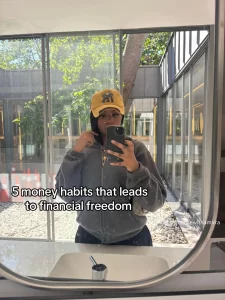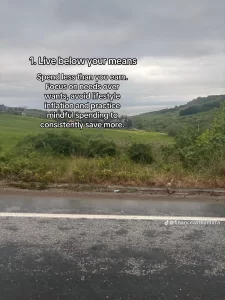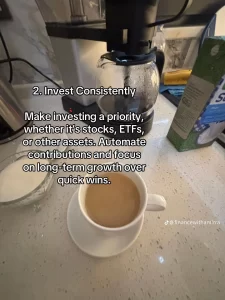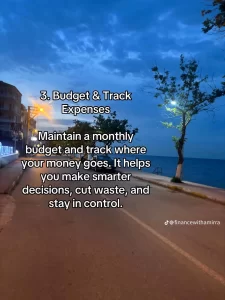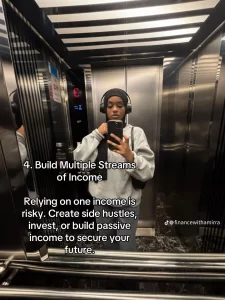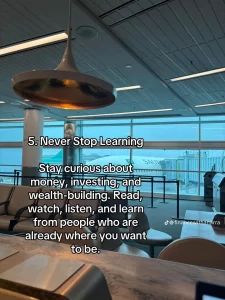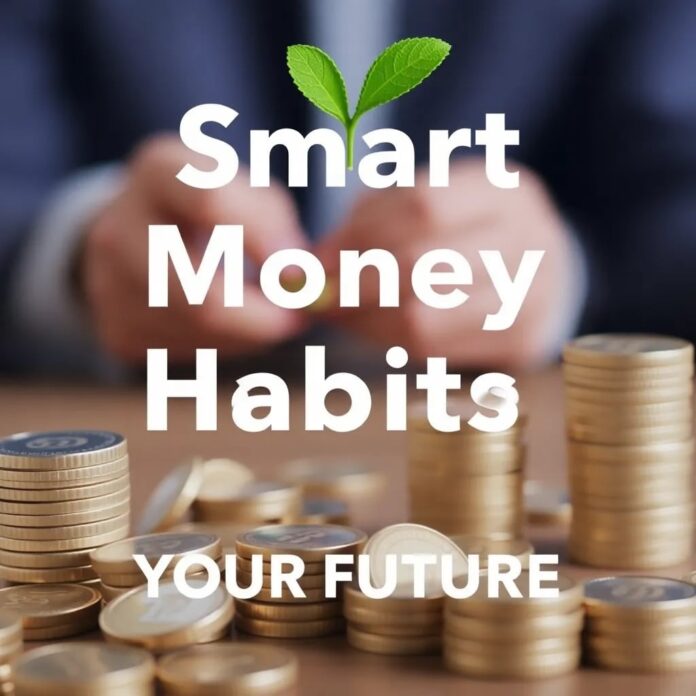Personal Finance Lessons That Stand the Test of Time
Wisdom That Transcends Generations. Money comes and goes, but timeless personal finance lessons remain unwavering—like ancient oaks weathering every storm. These principles aren’t just rules; they’re whispered secrets from grandparents, buried in dog-eared novels, and etched into the ledgers of history.
Spend Like a Poet, Save Like a Monk
There’s romance in frugality. Thoreau wrote of simplicity by Walden Pond, and today, minimalism trends on TikTok. The lesson? Live below your means—not with deprivation, but with intention. Every cedi saved is a stanza in your future’s epic poem.
The phrase “Spend Like a Poet, Save Like a Monk” aligns closely with Jay-Z’s financial philosophy, particularly in his album 4:44 (2017), where he emphasizes wealth-building, frugality, and generational wealth .
“The Story of O.J.” (2017) – From 4:44, this track includes lines like ‘I coulda bought a place in DUMBO before it was DUMBO for like 2 million-That same building today is worth 25 million’, highlighting strategic spending with purpose and monk-like discipline (saving/investing), akin to Thoreau’s minimalist ideals.
The 24-Hour Rule (A Love Story)
Impulse buys are seductive strangers in a midnight market. Pause. Wait 24 hours. If the desire fades, it was never love—just a fleeting infatuation. Your budget will thank you.
Compound Interest: The Eighth Wonder
Einstein called it the world’s most powerful force. A single seed, nurtured over decades, becomes a forest. Start early. Let time weave magic. Debt steals tomorrow’s joy today.
Invest in Yourself (The Ultimate Trend)
The Greatest ROI you will ever earn. ROI= Return on Investment. A financial term measuring the profitability of an investment. Calculated as:ROI = (Net Profit / Cost of Investment) × 100
1. Tangible ROI (Skills, Certifications) → Direct income boosts.
2. Intangible ROI (Confidence, Network) → Harder to measure but life-changing.
The ROI of reading 30 minutes daily? Compound wisdom.
Warren Buffett credits his success to investing 80% of his time in learning (books, mentors). That’s the ultimate ROI hack. ‘The best investment you can make is in yourself.” – Warren Buffett
In a world obsessed with stocks, crypto, and side hustles, the most overlooked asset is you. Oprah didn’t just host a show—she built an empire by mastering communication. The common trend? Self-investment compounds forever.
Why It’s Timeless?
1. Skills Over Stocks – A market crash can wipe out a portfolio, but no one can take your knowledge. Example: Learning to code in 2010 turned average es into tech millionaires.
2. Health = Wealth- Money means nothing without health. A Gh 25.00 salad today beats a Gh 50,000 hospital bill later. – Trend: Biohacking (sleep optimization, longevity diets) is the new “get rich slow” scheme.
3. Network = Net Worth – The right mentor or collaborator accelerates success faster than any algorithm. Your circle should want to see you win. – Gary Vaynerchuk. 1% Rule → Improve one skill by 1% daily. In a year, you’re 37x better (compound growth!).
Give—Because Scarcity Lies: Money clings when hoarded, multiplies when shared. The ancients knew it; modern science confirms it: Generosity breeds abundance.
Money
It slips through our fingers like Harmattan dust if we’re not careful. One day, your pocket feels heavy with promise; the next, you’re counting coins, wondering where it all went. If you’ve ever felt this way, you’re not alone.
In Ghana, where the hustle runs deep and dreams are big, managing personal finances can feel like a tight rope walk—between family obligations, rising costs, and the quiet hope for a better future.
But what if I told you that financial freedom isn’t just for the privileged few? With a few money habits, you could rewrite your financial story? Let’s walk through timeless lessons that our grandparents knew, wrapped in today’s reality.
Spend Less Than You Earn (The Wisdom of the Cocoa Farmer)
There’s a saying in Twi: “Sika a etu fam no, na woahu se woagye no.” (The money that falls to the ground is the one you realize you’ve saved.) Our cocoa farmers understand this—they know that after harvest, you don’t spend all at once. You store, you plan.
Yet, in today’s world of “buy now, pay later,” it’s easy to live beyond our means. That flashy phone? The latest ‘kaba’? They tempt us, but true wealth starts with spending less than you earn. Track your expenses, cut unnecessary costs, and prioritize needs over wants.
Save Like the Ant—Little by Little
Aesop’s fable of the ant and the grasshopper isn’t just a story; it’s a financial blueprint. The ant saves during abundance to survive scarcity. In Ghana, susu (micro-savings) groups have done this for generations.
Start small—even GH¢10 a day adds up. Open a separate savings account, automate deposits, or join an active susu group. The key? Consistency.
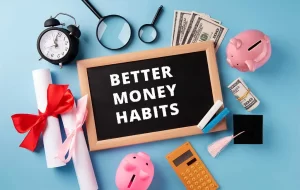
Invest in What You Understand (No, Not Just ‘Sika Duro’
Ghana’s investment landscape can be tricky—from “sika duro” (Ponzi schemes) to shaky stocks. But real investing isn’t gambling. It’s planting a seed and nurturing it.
Land & Property: Our people have always valued land. If possible, invest in real estate—it appreciates.
Education & Skills: The best investment is in yourself. Learn a trade, take a course, and upgrade your skills.
Stocks & Mutual Funds: If you’re new, start with low-risk options like Treasury Bills or mutual funds.
Avoid Debt Like ‘Akpeteshie’ Hangovers
Debt is like akpeteshie—a little might feel good at first, but too much leaves you with a headache. While some debt (like education or a mortgage) can be good, high-interest loans especially “mobile loans” drain your future earnings.
Before borrowing, ask: “Can I pay this back comfortably?” If not, walk away.
Prepare for Rainy Days (Because the Sun Doesn’t Always Shine).
Life is unpredictable. A job loss, an illness, a family emergency—these storms come unannounced. An emergency fund, your Financial Hug. Life’s storms arrive unannounced. A savings cushion isn’t cold math—it’s self-care. It whispers, “You’ll be okay,” when the world shouts chaos.
Teach Your Children Money Wisdom (So They Don’t Learn the Hard Way)
We teach our kids to say “please” and “thank you,” but do we teach them about money? Financial literacy is a legacy. Give them a “susu box” to save small coins. Teach them the difference between “needs” and “wants.” Let them earn small amounts through chores—it builds responsibility.
Your Financial Story is Still Being Written.
Money isn’t just about numbers—it’s about choices, discipline, and dreams. It’s about the trader in Makola who saves to send her child to school. It’s about the teacher who invests in a side hustle for extra income. You don’t need to be rich to start. You just need to start to be rich.
So today, take one step. Save that extra cedi. Skip that impulse buy. Invest in knowledge. Because the best time to plant a money tree was 20 years ago—the second-best time is now.
‘Sika ye mogya,’they say—money is blood. Let’s treat it with care so it flows, grows, and sustains us through every season.
What’s your next smart money move?
E.A-B Kelzi
